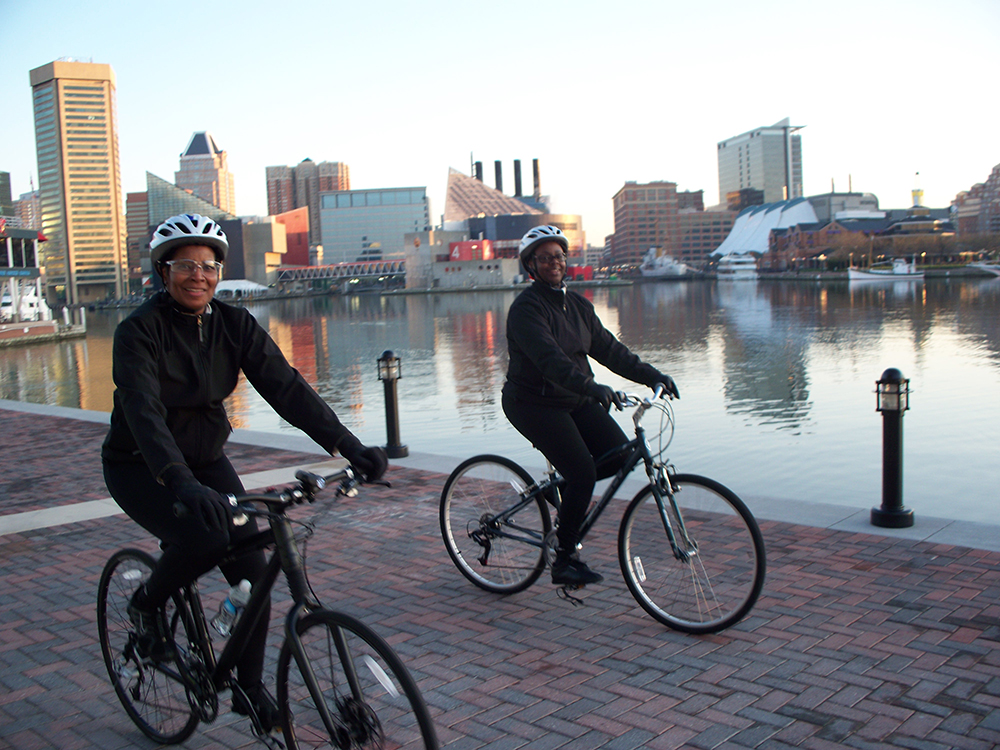
Not that biking needs to be competitive—we like it fine just as everyday transportation—but we are pleased to see Maryland moving up four slots in the League of American Bicyclists’ annual ranking of bicycle-friendly states.
Maryland scored high marks in encouragement and legislation—creating a 3-foot passing law and toughening distracted driving penalties (Jake’s Law) in recent years—as well as education and encouragement. The state also received kudos for new polices that include bicycle education for police and an emphasis on bike safety in its strategic highway plan.
Maryland also received shout-outs for its active state advocacy group, Bike Maryland, as well as its “Complete Streets” policy, “Share the Road” campaign, and commitment to state funding. The state’s report card can be found here.
Washington, Minnesota, and Wisconsin made the podium in the rankings, coming in at No. 1, No. 2, and No. 3, respectively. Delaware ranked fourth, with nearby Virginia and Pennsylvania at No. 18 and No. 19, respectively.
In a statement, Gov. Martin O’Malley highlighted the passage of the Transportation Infrastructure Investment Act of 2013 as key in supporting alternative transportation efforts, including bicycling projects. Maryland will dedicate nearly $210 million over the next six years to programs that support alternative transportation projects, including bike lanes and trails. In 2011, O’Malley launched the Cycle Maryland initiative to promote cycling and increase funding to expand bicycling opportunities.
“To build a modern transportation system that supports the needs of all Marylanders, we have to invest in alternative forms of travel like bicycling,” said O’Malley. “We are honored that the League of American Bicyclists recognizes Maryland as a leader in making bicycling a true transportation alternative. Beyond the health benefits, expanding cycling and walking opportunities are fundamental to our ongoing efforts to foster sustainable land-use, protect the environment, reduce greenhouse gas emissions and better connect our communities.”
